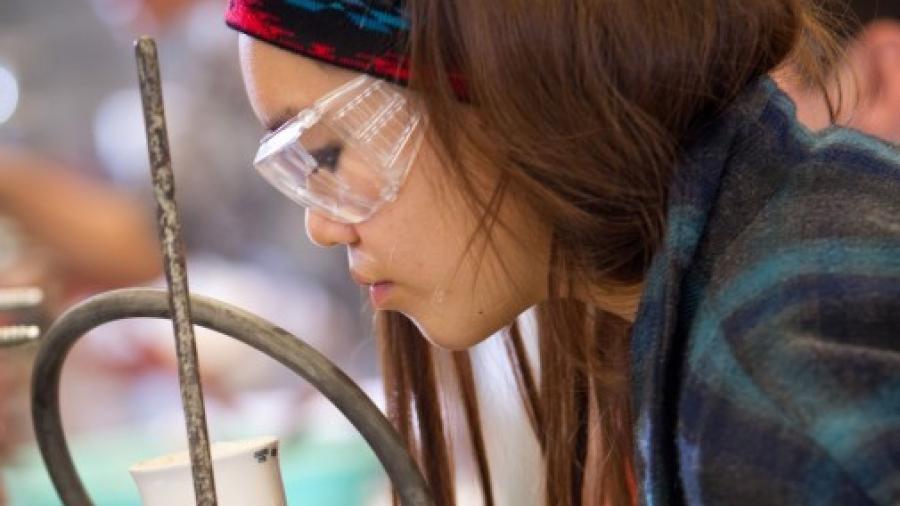Westmont Magazine Challenge Grant to Fund Student Research

Westmont can raise $1 million for summer research in chemistry by matching a $500,000 grant.
The John Stauffer Charitable Trust has awarded Westmont a $500,000 challenge grant to endow the chemistry department’s Summer Science Research Program. The trust will match each dollar donated to the program through 2017 to create a $1 million endowment.
“Summer research at Westmont with Professor Allan Nishimura taught me how to be a scientist and ultimately persuaded me to pursue my doctorate in physical chemistry at Stanford,” says Niva Tro, who has taught chemistry at Westmont for 22 years.“Because I was included as a coauthor on three of Allan’s publications, I was able to gain admission into the best chemistry graduate program in the country.”
In 31 years at Westmont, Nishimura has collaborated with about 80 different students, co-authoring 95 published manuscripts.“The grant secures the future of undergraduate research in the chemistry department at Westmont in perpetuity,” Tro says.“We manage to scrape our program together each year, but this grant puts it on secure footing and will allow us to expand it a bit.”
When fully matched, the grant will fund housing and stipends for eight to 10 student researchers each summer. Currently, the college can fund three to six student researchers.“Science is best learned through apprenticeship,” Tro says.“When students do real research in a small group with a faculty member, they experience science from the inside. That’s invaluable.”
The John Stauffer Charitable Trust, a private foundation based in Pasadena, was established in 1974 under Stauffer’s will.The trust directs its support primarily to Southern California hospitals, universities and colleges. In recent years, the trust has emphasized grants to fund student research in chemistry and biochemistry at such colleges as Westmont, Occidental, Harvey Mudd and Pomona.
Twenty-five students exhibited summer research projects Sept. 6 at a Celebration of Summer Research. Students presented their findings on poster boards and answered questions after conducting research on a wide variety of topics in biology, chemistry, physics, psychology, English, economics and business and religious studies.